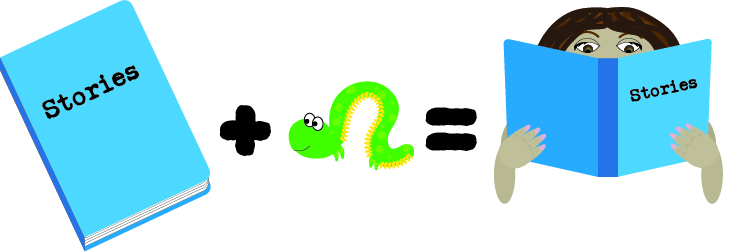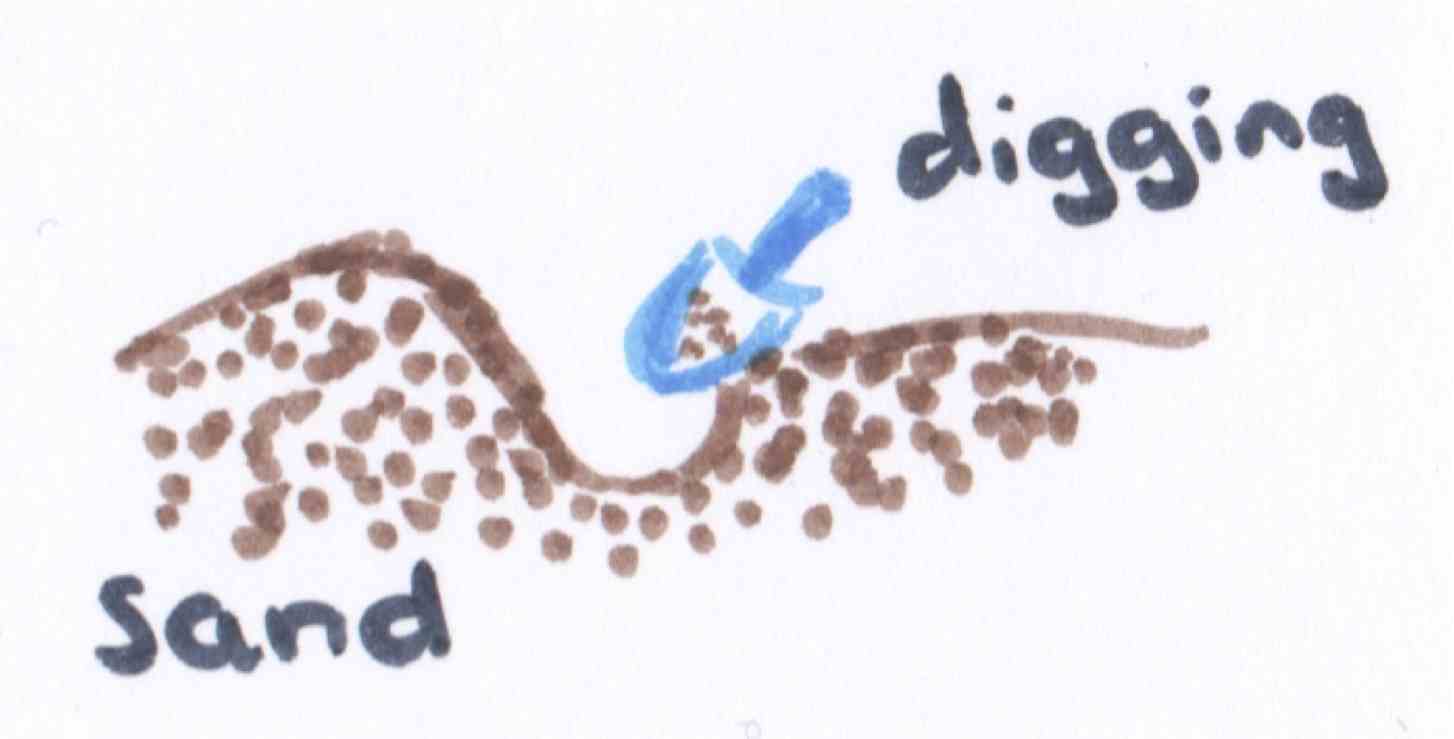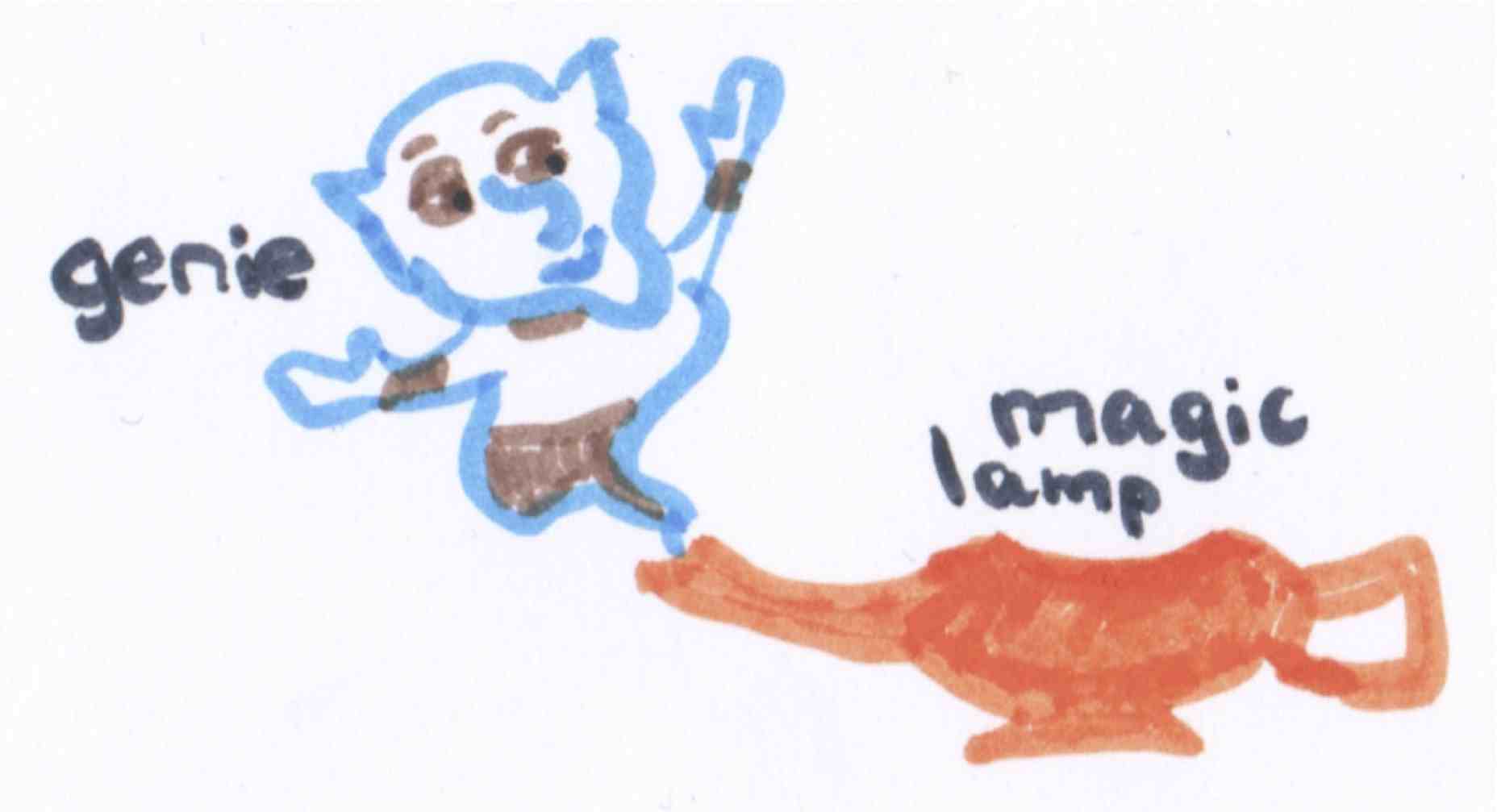Are you a bookworm?

Do you like to read? If you do, then you are a bookworm – a person who loves books.
The stories on this website are short and fun, and you can use them to help you learn English. You will find three levels of stories here - beginning, intermediate, and advanced.
Let me show you what I mean. Here is a very short story. Actually, it's a joke:
A Joke: Three Men on an Island
Three men are in a boat in the middle of the ocean.
Suddenly there is a big storm, and their boat crashes on an island. The men live on this island for many days, eating only coconuts.
One day, one man is sitting in the sand, waiting for a boat or an airplane to come. He starts digging in the sand and he finds a magic lamp.  When he rubs the sand off, a genie comes out. “You can each have one wish,” the genie says.
When he rubs the sand off, a genie comes out. “You can each have one wish,” the genie says.
 The first man says, “This is wonderful! I miss my family, my house, and my job. I want to go home.” POOF. The man is gone. The second man says, “I miss my dog, my flat-screen TV, and my apartment. I want to go home too.” POOF. The second man disappears. The genie looks at the third man and says, “Well, what do you want?” The last man thinks for a minute and says, “I'm all alone here. I want my friends to come back!”
The first man says, “This is wonderful! I miss my family, my house, and my job. I want to go home.” POOF. The man is gone. The second man says, “I miss my dog, my flat-screen TV, and my apartment. I want to go home too.” POOF. The second man disappears. The genie looks at the third man and says, “Well, what do you want?” The last man thinks for a minute and says, “I'm all alone here. I want my friends to come back!”
to disappear - (verb) when you can't see something anymore. Example: The sun disappeared behind the clouds.
wonderful - (adjective) really good, great, fantastic. Example: I had so much fun in Italy this summer. It was a wonderful vacation!
alone - (adjective) only one, by yourself. Example: In the summer, my parents go to work and I stay at home alone.
Did you understand the joke? Did you learn some new words? This website is full of stories that will help you get better and better at English. You will find the stories divided into three levels: Beginning, Intermediate, and Advanced.
9 Reasons to Read in English
1. Everything is easier when you're having fun. If you read something that is interesting for you, it will feel like fun and not like work.
2. It's all about input. You have to feed your brain with reading and listening material before you can start using the language yourself. All this “food” for your brain is called input. Reading is a great way to get input because you have a lot of contact with the language.
3. Think in English! Did you ever have a popular song get stuck in your head? Reading helps you start thinking in English. Suddenly new words and phrases will pop into your head and surprise you.
4. Learn naturally. As you read, you are flooding your brain with lots and lots of natural, grammatically-correct sentences. You will start to feel how words are put together naturally. You will begin to notice when a sentence sounds right, and when something sounds wrong.
5. Build vocab. You will learn new vocabulary by seeing the words many times in the stories. You can use what you know in each story to help you understand the words that you don't know yet. When you learn words through context and repetition, you will remember them better.
6. See your progress. After you learn a new word, have you noticed that you start to see it everywhere? On TV, at school, on a website. As you read, you will see the new things that you have learned, and you will know that you are improving.
7. Read anywhere! To practice conversation, you have to have someone to talk to. But you can read anything, any time, and anywhere you want.
8. Take it further. Language used in daily conversation is fairly simple. If you really want to improve, you will be happy to find richer language in reading material.
9. Improve all areas of your English. Reading does more than just help you read better in English. It will also help you speak better, write more naturally, and understand more when you listen. And believe it or not, it will help your grammar too!
